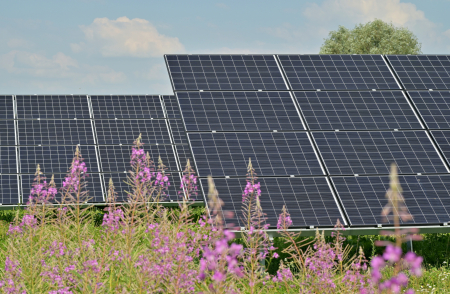IPCC Climate Change Mitigation report released

The IPCC has finalized the third part of the Sixth Assessment Report, Climate Change 2022: Mitigation of Climate Change, the Working Group III contribution. It was finalised on 4 April during the 14th Session of Working Group III and 56th Session of the IPCC.
The Working Group III reports on an updated global assessment of climate change mitigation progress and pledges, and examines the sources of global emissions. It explores the issues involved in mitigation; feasibility, cost and enabling factors such as policy, governance and social views on mitigation measures. The report also explores synergies and trade-offs with adaptation measures, co-benefits, risks and links to sustainable development.
Some key findings relevant to NbS from this WGIII report include:
- In order to meet emissions pathways that meet the Paris Agreement’s goal to limit warming to 1.5°C, greenhouse gas (GHG) levels need to peak before 2025 and then fall by 43% from 2019 levels by 2030. The most recent national climate commitments (NDCs) announced by countries are not on track for this goal, with global GHG emissions exceeding the amount needed to limit warming by 19-26 GtCO2e in 2030. More ambitious pledges are needed to close the gap.
- Mitigation strategies can reduce warming, generate critical co-benefits for sustainable development, and protect biodiversity and natural resources, if well-designed and effectively implemented. Managing trade-offs in strategies through inclusive, participatory decision-making can improve public trust and support for climate action.
- The Agriculture, Forestry and Other Land Uses (AFOLU) sector offers significant mitigation opportunities while delivering food, wood and other renewable resources as well as biodiversity conservation, but only with adaptation to climate change. Land-based mitigation measures can deliver carbon dioxide removal and substitute for fossil fuels; enabling emissions reductions in other sectors.
- All mitigation pathways require carbon removal approaches; including direct CO2 removal through technological approaches, and natural solutions such as carbon sequestration in trees and soil. Given that carbon removal technologies are not yet fully developed, there is an urgent need for further research, development and deployment of technological and natural approaches.
- New fossil fuel infrastructure must be avoided in order to limit warming to 1.5°C. The budget of CO2 that can be emitted in order to reach net zero around mid-century (2050-2055) is 510 Gt, 340 Gt less than the 850 Gt of CO2 emissions expected from existing and planned fossil fuel infrastructure.
- Financing for climate change mitigation must increase by 3 to 6 times by 2030 in order to limit warming to less than 2°C. Finance for fossil fuels currently exceeds that for climate change measures while mitigation investments across the agriculture, forestry and other land use sectors are 10 to 29 times below what is required to limit warming to 1.5°C. Therefore international policies are needed to support investment in mitigation, such as phasing out public finance for fossil fuels, increasing mitigation subsidies, pricing carbon emissions, and strengthening regulation.
The IPCCC WGIII report highlights that we are at a crossroads – “without immediate and deep emissions reductions across all sectors, limiting global warming to 1.5°C is beyond reach. However, there is increasing evidence of climate action”. GHG emissions are currently projected to lead to a median global warming of 3.2°C by 2100. Action must be taken now to peak GHG emissions before 2025, nearly halve GHG emissions by 2030, and reach net-zero CO2 emissions around mid-century, while also ensuring a just and equitable transition. The role of Nature-based Solutions in addressing climate change and its impacts, while providing co-benefits, is outlined in our news item covering the WGII report.
With this mitigation report, the Intergovernmental Panel on Climate Change (IPCC) has completed its sixth assessment cycle. The IPCC Sixth Assessment Report (AR6) comprises three Working Group contributions: Working Group I (the physical science basis), Working Group II (impacts, adaptation and vulnerability) and Working Group III (mitigation), and a Synthesis Report due for release in September 2022.
Read the full IPCC WGIII report or find digested information in the Press Release, Headline Statements, Summary for Policymakers, and Technical Summary.




